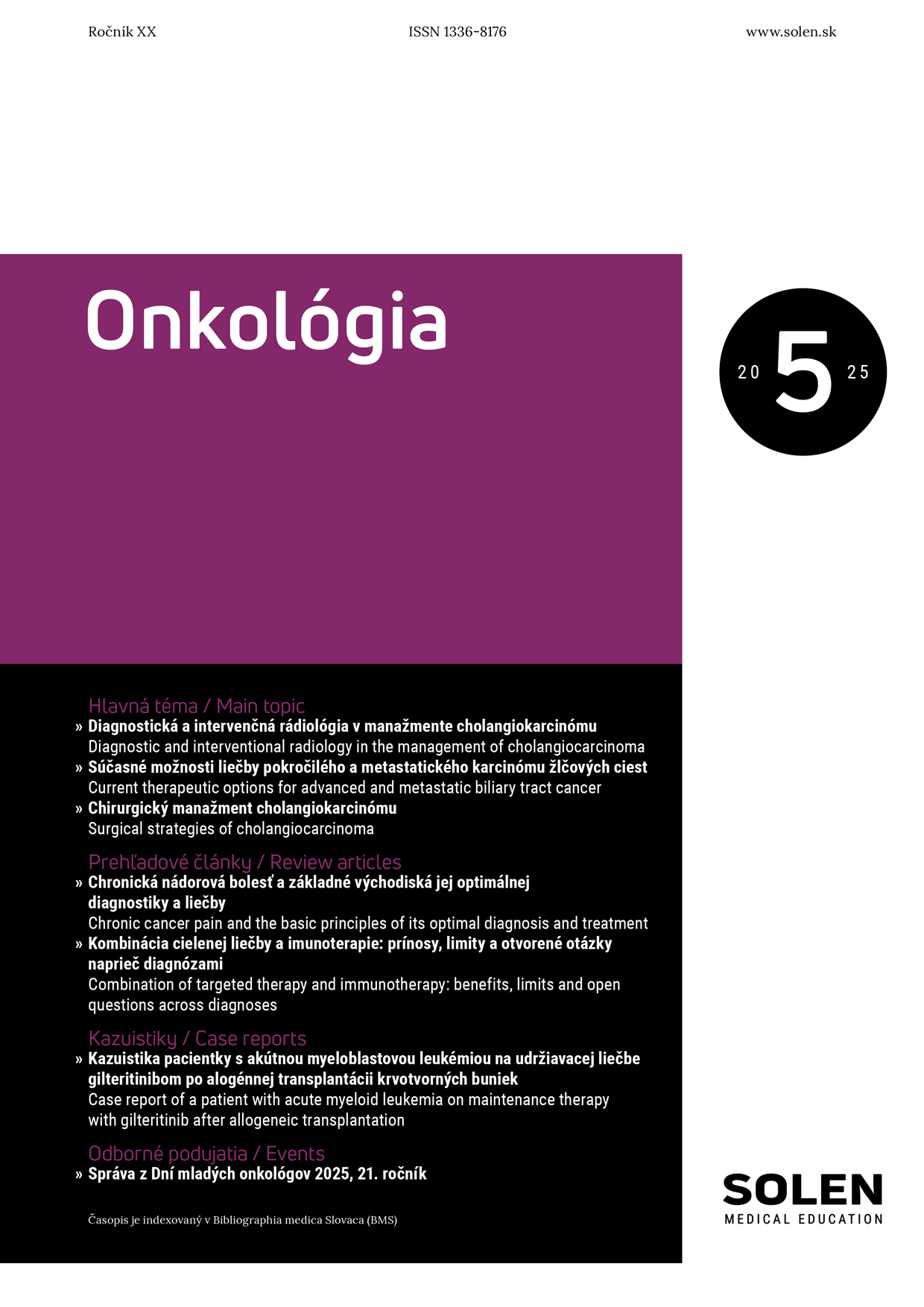Slovenská chirurgia 2/2021
Glycated hemoglobin hba1c as a predictor of apostoperative complications in cardiac surgery
The aim: Glycated hemoglobin (HbA1c) levels are routinely used in clinical practice to monitor glycemic control over the last 2-3 months. The aim of our study is to demonstrate the association of elevated HbA1c values with the occurrence of postoperative complications in a patients undergoing cardiac surgery. Material and Methods: In this study, we evaluated 499 patients undergoing elective, isolated, cardiac surgery - coronary artery bypass grafting using extracorporeal circulation (CABG), off pump coronary artery bypass (OPCAB) and aortic valve replacement (AVR) at the Department of Cardiac Surgery UPJŠ LF and VÚSCH a.s.(KSCH). We supplemented the prospective study from 2019 to the end of 2020 with a retrospective study from 2014. The HbA1c was screened 1-3 days before the surgery. Results: The postoperative length of hospital stay in the HbA1c group <6.5% was 9.7 ± 3.7 days and in the HbA1c group ≥ 6.5% was 11.6 ± 7.1 days (p = 0.006). In the group with HbA1c <6.5%, 3.41% of patients required rehospitalization on KSCH, and in the group with HbA1c ≥ 6.5% it was up to 15.17% of cases (p <0.001). In the group with HbA1c ≥ 6.5%, there was a statistically significant mortality rate (3.1%) during hospitalization (p = 0.017). 30-day mortality was statistically higher in patients with HbA1c ≥ 6.5%, representing 3.41%, and no 30-day mortality was reported in patients with HbA1c <6.5% (p = 0.01). We also compared 1-year mortality, where in the group with HbA1c<6.5% we had 0.57% mortality in the group with HbA1c ≥ 6.5%, the mortality was up to 8.05%, which represents a statistically significant difference (p <0.001 ). The statistical significance of the increased incidence of sternal wound infections was ≥ 6.5% in the HbA1c group, of which up to 25.1% were present (11,5% superficial; p=0,001 and 13,6% deep sternal wound infection; p=0,001). Deep sternal wound infection with the need for rehospitalization and application of the vacuum assisted closure system was found in 11.1% of patients (44/323), with statistical significance (p <0.001). The statistical significant incidence of lower limb infections after great saphenous vein harvesting in the group with HbA1c ≥ 6.5% was 15.26% (p = 0.002). The incidence of patients with postoperative de novo atrial fibrillation in the group with HbA1c <6,5% and HbA1c ≥ 6.5% was 26.11% (41/157) and 29.29% (82/280) (p = 0.405). Discussion: A significant increase in the incidence of postoperative complications was observed in the HbA1c group ≥ 6.5%, consisting of 323 patients, where the mean HbA1c value was 8.07%. Our study results, which confirmed the effect of elevated HbA1c on a statistically significantly increased incidence of sternotomy wound infections, correlated with the results of other authors. HbA1c values ≥ 6.5% resulted in prolonged hospitalization by 2 days, an increased incidence of rehospitalizations, 30-day and 1-year mortality (15.17%; 3.41%; 8.05%). However, based on our results as well as data from the literature, it is clear that: in patients before elective cardiac surgery, early examination of HbA1c by a general practitioner or diabetologist and their adequate dispensarization with the aim of maximum correction of glycaemia and achievement of HbA1c < 6.5%. In patients with preoperative HbA1c ≥ 6.5%, it is advisable to consider to postpone the date of cardiac surgery after evaluation of the patient‘s cardiac findings and symptomatology. Conclusion: The results of the research confirm the importance of HbA1c, which can be used as an independent predictor of postoperative complications in cardiac surgery. Based on these findings, it is necessary to emphasize the relevance of HbA1c testing before admitting a patient to hospital for all cardiac surgery patients, including non-diabetics. The results of the analysis in our research suggest that the critical value set in the American Diabetes Association recommendations may not be sufficiently stringent. Based on our results, we suggest to determine the critical value of glycated hemoglobin for elective cardiac surgery to a value of HbA1c <6.5%.
Keywords: glycated hemoglobin, HbA1c, postoperative complications, diabetes mellitus, cardiac surgery, aortic valve replacement, coronary artery bypass grafting

















